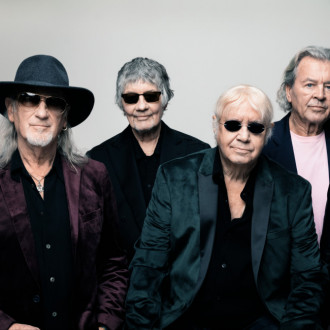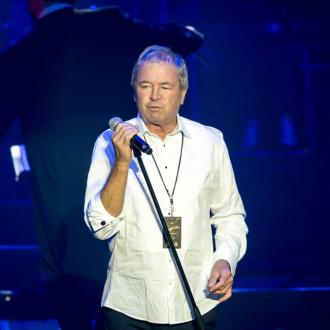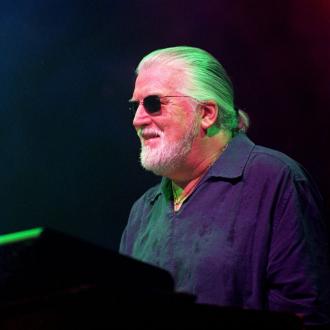Deep Purple's Jon Lord Dies From Cancer
By WENN on 16 July 2012
Deep Purple co-founder Jon Lord has lost his battle with cancer at the age of 71.
The keyboard player was diagnosed with a tumour in his pancreas in 2011 and he headed to Israel in February (12) to undergo specialist treatment. Lord was due to make his live comeback at a show in Hagen, Germany earlier this month (Jul12), but had to postpone the gig due to poor health.
A statement released at the time read: "Jon wishes to assure everyone that this is not a matter for concern, but it is a continuation of his regular treatment that has just taken longer than anticipated. He and the Hagen Philharmonic Orchestra hope to be able to reschedule the concert for later in the year."
However, Lord's condition took a turn for the worse and he passed away on Monday (16Jul12) at a private hospital in London.
A post on his official website states: "It is with deep sadness we announce the passing of Jon Lord, who suffered a fatal pulmonary embolism today, Monday 16th July at the London Clinic, after a long battle with pancreatic cancer. Jon was surrounded by his loving family."
Lord co-founded Deep Purple in 1968 and co-wrote many of the band's songs, including Smoke On The Water.
He remained with the band when it reformed in 1970 and was still a member until his retirement in 2002.
Lord also worked with Whitesnake and the Flower Pot Men, among other acts, and he was working on new material with supergroup WhoCares up until his death. The band included the rocker's Deep Purple bandmate Ian Gillan, Black Sabbath's Tony Iommi, and former Metallica star Jason Newsted.
Born in Leicester, England in 1941, Lord studied classical piano from the age of five and initially set his sights on an acting career, enrolling at the Central School of Speech and Drama in London in 1959.
A year later, music took over as Lord put his piano lessons to good use as a member of jazz ensemble the Bill Ashton Combo, and he quickly became a well-known go-to pianist for the emerging British blues movement.
He formed the Art Wood Combo with Wood and drummer Red Dunnage in 1963 and started making a name for himself on TV and on the live circuit when the band changed its name to The Artwoods in the mid-1960s. The band even found chart success with the single I Take What I Want in 1966.
Lord then formed short-lived Santa Barbara MAChine Head with Art Wood's brother Ronnie before embarking on Deep Purple following a chance meeting with Ritchie Blackmore and Ian Paice.
He was also a renowned classical musician and composer throughout his career, often reworking Deep Purple's anthems for orchestral epics.
Contactmusic






